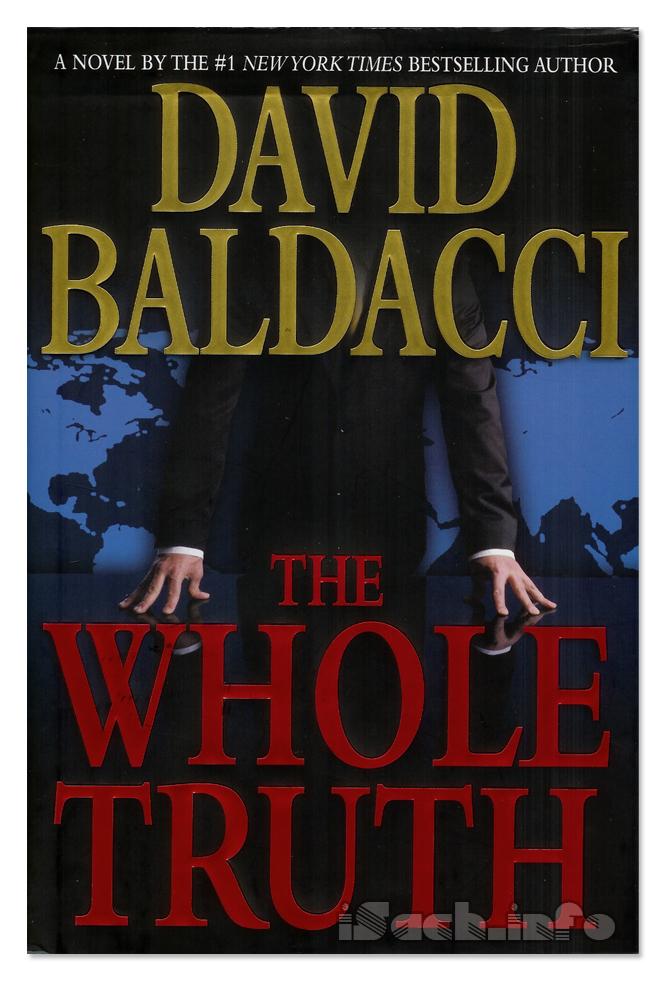Chapter 8
“R
EMEMBER KONSTANTIN” HAD REACHED fever pitch. There were rallies against the Russians in fifty countries and the United Nations had formally asked a furious President Gorshkov for a more thorough response. And yet calmer, or at least more skeptical, minds were establishing a wall against this groundswell of anti-Russian sentiment.A good number of political leaders, journalists, commentators, and think-tank types, stung in the past by rushes to judgment, urged caution and restraint in the wake of the “Remember Konstantin” outrage. More questions had been raised about the authenticity of the man and the video, particularly in the wake of detailed denials and unprecedented access to classified records provided by the Russian government to outside media. Soon after this measure of cooperation by Moscow, the worldwide sentiment that Russia was evil incarnate had begun to ebb a bit. And leaders around the globe began to breathe a little easier. However, this was merely the calm before the real eruption.
Two days later the world received another collective shock when digitally goose-stepping across servers around the globe came the names and photos of thousands of Russians allegedly slaughtered by their own government. They included men, women, children; young, old, pregnant, and disabled. And included with the faces and names were details as to each of their lives and gruesome, tragic deaths. More damaging still, these files all possessed the indicia of coming right from the classified files of the Russian government.The “RE:” line of the accompanying blast was simple and devastating: “Remember More Than Konstantin.” Soon everyone from so-called experts to expatriate Russians and people from former Soviet bloc countries went on TV, radio, and the Web to attack Russia for its obvious descent back into a maniacal, world-power-grabbing menace.
It was as though the image of poor, tortured Konstantin, bolstered by the indelible imprint of thousands of “new” dead, had given people the courage to finally speak out. On a bizarre note, coffee mugs, and T-shirts silkscreened with Konstantin’s haunted image, apparently now the Che Guevara of his generation, flooded global markets. And the 1960s had suddenly returned with accompanying images of mushroom clouds alive in people’s collective nightmare.
Folks claiming to be family or friends of Konstantin appeared on news shows around the world, telling and retelling the plight of a man who had never existed. Yet they spun their yarns with gusto, having apparently convinced themselves that he was real and they had known him. He was a martyr, famous and beloved, and now they were too. Their poignant appearances captured the attention and the hearts of people around the world.
The talk show hosts and news anchors asked these folks many probing questions, like, “This is all very upsetting, isn’t it?” and “If he were alive right now what message do you believe poor, murdered Konstantin would like to deliver to our millions of viewers?”
One man wisely intoned on a BBC channel, “In a world of scarce power, scarcer water, and new enemies cropping up every day, the Russians are clearly not content to play second fiddle to places like China and India, or even the United States.” The fellow went on to add that the Russians had tried democracy and they did not care for it. The Russian Bear was about to assert itself once more and the world had better damn well take notice.
The world had taken notice, because the speaker of these words was none other than Sergei Petrov, the former number two man in the successor entity to the KGB, the Federal Security Service. He’d barely escaped his homeland with his life. Any day now he said he expected to be struck down by a bullet, bomb, or polonium-210-laced coffee for his candor. He’d also been well paid for his remarks from a source totally unknown to him. People were still trying to ferret out if all this was true or not. But they’d get no help from Petrov, for he had no love lost for his homeland.
Yet the real question on everyone’s mind was, who was behind all this, and why were they doing it? And despite this being the information age, no one could find a definitive answer to that, for a very simple reason that most people overlooked: in the information age, there were not millions of places to hide, there were trillions.
The multiple crises in the Middle East were forgotten. Crazy Kim in North Korea was relegated to the back pages. Every U.S. presidential candidate in the upcoming election was asked the same question: “What do you intend to do about a country with almost as many nukes as the United States and a past full of world-domination-minded leaders?”
The American public, in particular, was furious. All this time, money, and lives wasted in the Middle East while the Russians secretly pursued their plans to crush the free world? Russia had thousands of fully realized nuclear warheads that it could deliver to any place on earth. It made bin Laden and al Qaeda look like petty criminals. How had all the smart people missed that one? And when the American public was upset, it let people in power know it.
The incumbent president, who was running for reelection, saw his poll position go from first to fifth as his opponents successfully painted him as soft on Russia. Every major magazine had Konstantin’s picture on it. Every pundit show from Hardball to Face the Nation to Meet the Press and every blog, chat room, and cybercafé talked about nothing else other than the rise of Russia, the possibility of a return to the cold war, even the reemergence of a new Iron Curtain that some insensitive souls were already dubbing the Titanium Coffin.
The political talk show pundits were screaming the loudest from their billion-watt stages, claiming that they’d been voicing this potential danger all along when of course they’d been laser-fixed on the Middle East like everyone else. Still, they collectively roared, “I speak for the common man when I say, nuke the damn Reds before they nuke us. It’s the only way.”
The major television networks trotted out their enormous archives of grainy black-and-white images of nuclear bomb detonations. At least two generations of Americans for the first time saw pictures of wide-eyed 1960-s-era schoolchildren huddled under desks as though a bit of laminated wood and flimsy glass could actually protect them from a thermonuclear blast. Along with this came film footage of the communists parading their military might in front of the Kremlin. And it scared the hell out of everybody.
As one op-ed piece candidly, if tastelessly, stated, “If Moscow hits New York with nukes, it won’t just be two buildings falling down. It’ll be all of them.”
The U.S. military, the only viable counter to Moscow’s army other than perhaps China’s three-million-man machine, was beaten up, its numbers and morale down and its equipment destroyed by Iraqi sand and jerry-rigged IEDs. While it was true that the American air force and navy were far more than a match for anything the Russians could cobble together, the United States and the rest of the world were still holding their collective breath. No one knew what the crazy Russians would do next. Yet the planet did seem to know one thing.
The Evil Empire was back.
Nicolas Creel put down his newspaper and his coffee. He was presently flying seven miles above the earth on his way to a very important event. He’d been filled in on all the latest developments. Things were going along nicely. In the parlance of the perception management field, the world had firmly entered the “gripper” stage, where the majority of people embraced as true everything they were told. It was far easier to accomplish this than most would care or dare to believe. It was easy to manipulate people. Folks had been doing it pretty much forever with results that had taken the world right to the edge of destruction.
The digital images flowing across global networks right now, the faces of tens of thousands of supposedly murdered Russians looking pleadingly at the rest of humanity, was a tactical maneuver that Creel’s perception manager liked to call a “Vesuvius,” after the volcano that had erupted and destroyed the Roman cities of Pompeii and Herculaneum. Through sheer overwhelming bulk, it made whatever denials the government in Moscow was making seem absurd, even though it was the truth. It was part of a classic “mind manipulation maneuver,” something Creel’s man referred to as the “Triple M,” and that had worked in this instance to perfection. Not only did the Russians look like liars, but they appeared to be incompetent liars on top of it.
Creel looked out the window of his 767 wide-body jumbo jet. Designed to hold over 250 ordinary people, it was amazing how one could make the ordinary extraordinary by reconfiguring the aircraft to accommodate twenty privileged individuals, wrapping them in the embrace of private bedrooms with en suite baths, a gym, full-time masseuse, dining room, conference room, and even a movie theater. And at his beck and call were three leggy flight attendants in tight skirts with “Ares” on the back of their blouses. Not that Creel noticed this. Well, perhaps a bit.
He was a married man. In fact, he had been married four times and counting, the latest to a Miss World Hottie or something like that; he couldn’t exactly remember her title. It was absurd of course and wouldn’t last. He’d have some fun, though, and she’d get enough from the divorce to live comfortably. His first two wives had been elegant, smart, and opinionated and driven him absolutely insane. He now opted for the arm candy, trading in for a new model every so often with the security of an ironclad prenup seriously limiting what the lady walked away with.
He looked out the window. Down below was China, a country with more potential and more problems than any land on earth. Yes, a complex place, perhaps the most complicated of all. And what a superb place to start a war, thought Creel. Yet it was actually far more complicated than something that simple.
Nicolas Creel had never sought out the easy. He always went for the seemingly impossible.



 ePub
ePub A4
A4